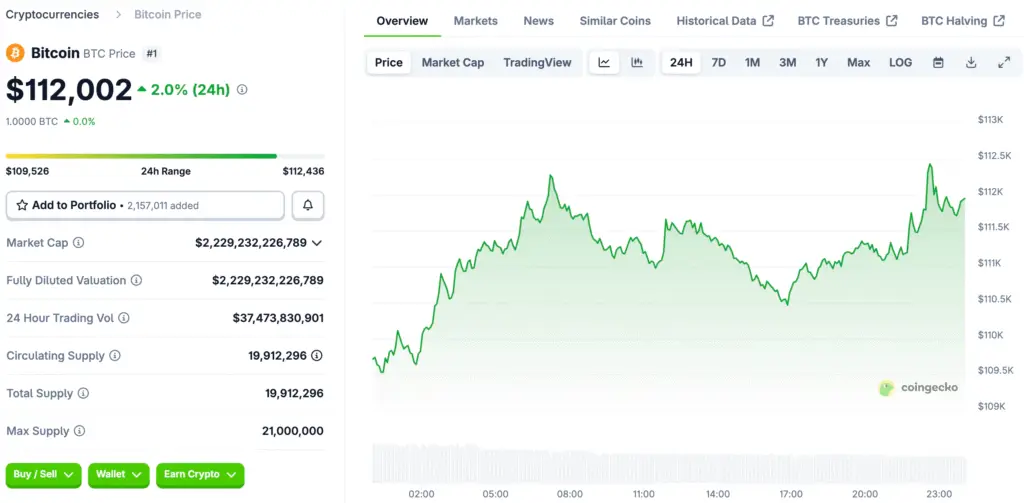The Global Shift Towards Bitcoin as a Reserve Asset
Bitcoin has cemented its position as one of the most compelling and transformative assets of the modern era. Its decentralized nature, finite supply, and growing institutional acceptance have led many to view it as a potential hedge against inflation and a powerful reserve asset. Countries, corporations, and even some central banks have begun to cautiously explore the possibility of holding Bitcoin as part of their treasury or foreign reserves.
This global shift is driven by a recognition that traditional fiat currencies and reserve assets are subject to geopolitical risks and inflationary pressures. The growing influence of public figures and a more favorable regulatory environment in some regions have further accelerated this trend, prompting a debate about whether holding Bitcoin is a forward-thinking strategy or a high-risk gamble for a nation’s financial stability.

The Central Bank of Brazil’s Official Stance
Despite the global momentum, the Central Bank of Brazil has taken a cautious and even oppositional stance on the matter of a national Bitcoin reserve. At a recent congressional hearing, a representative of the bank weighed in on a proposed bill that would allow Brazil to invest up to 5% of its foreign reserves in Bitcoin. The bank’s position was clear and critical. The representative stated that Bitcoin “was treated as a capital instrument, not a financial instrument or reserve asset.”
This classification is a critical distinction, as it places Bitcoin in a category of assets that are not considered suitable for the stable and conservative management of a nation’s financial holdings. Furthermore, the bank’s internal studies concluded that acquiring Bitcoin would “increase the risks” associated with these reserves, a stark warning against the proposed measure.
Arguments Against a Bitcoin Reserve for Brazil
The Central Bank of Brazil’s opposition is based on several key arguments that are common among traditional financial institutions. The primary concern is volatility. Bitcoin’s price is known for its dramatic swings, which could introduce an unacceptable level of risk to a country’s foreign reserves, which are managed for stability and liquidity. Additionally, the bank’s classification of Bitcoin as a “capital instrument” suggests that it views the asset as a speculative investment rather than a reliable store of value.
This perspective is rooted in the traditional framework of central banking, where reserves are primarily held in stable, internationally accepted assets like U.S. dollars, euros, and gold. The bank’s position also reflects a lack of a clear regulatory framework for crypto assets, which could create legal and operational challenges for a government trying to manage a digital reserve.
The Potential for Lawmakers to Overrule the Central Bank
While the Central Bank’s position carries significant weight, it is not the final word on the matter. The bill to establish a Bitcoin reserve is still in its early parliamentary stages, and lawmakers have the power to override the bank’s guidance. The debate now shifts to the legislative branch, where a new conversation can begin. It is a moment of truth for Brazil’s elected officials to demonstrate their understanding of the evolving global financial landscape.
Lawmakers who are more educated on the characteristics of Bitcoin, such as its deflationary nature, borderless transactions, and censorship resistance, may be more inclined to support the bill. This legislative effort represents a unique opportunity for Brazil to position itself as a forward-thinking nation and a leader in the digital economy.
The Strategic Opportunity Brazil May Lose
By failing to embrace a Bitcoin reserve, Brazil risks missing a unique opportunity to become a crypto pioneer in Latin America. While other countries like El Salvador have already taken the bold step of adopting Bitcoin, a country with Brazil’s economic size and influence could set a powerful precedent for the entire region. A national Bitcoin reserve could attract new investors, stimulate innovation, and create a new economic model that is less dependent on traditional financial systems.
It could also provide a strategic advantage in a world where digital assets are becoming increasingly important. The central bank’s opposition, if it sways lawmakers, could be a significant setback, preventing Brazil from taking a leadership role in a market that is poised for massive growth. This would be a lost opportunity to capture a new source of revenue and technological progress.
The Broader Implications for Latin American Crypto
The outcome of Brazil’s Bitcoin reserve debate will have ripple effects across Latin America. The region has shown a strong interest in cryptocurrencies, driven by a need for financial inclusion and a desire to escape economic instability. If Brazil, a regional economic powerhouse, were to adopt a Bitcoin reserve, it would send a strong signal of support to the entire continent.
It would encourage other countries to follow suit, potentially creating a new economic bloc based on digital assets. Conversely, if the central bank’s opposition prevails, it could temper the enthusiasm for crypto adoption and reinforce the status quo. This debate is a microcosm of the larger global struggle between traditional financial institutions and the decentralized future of finance. The result in Brazil will be watched closely by policymakers and investors around the world.
Navigating Brazil’s Bitcoin Reserve Dilemma
The Central Bank of Brazil’s opposition to a national Bitcoin reserve highlights the tension between traditional financial caution and the innovative potential of digital assets. While the bank’s concerns about volatility and risk are valid within its established framework, its position could prevent Brazil from seizing a unique opportunity to become a regional leader in crypto.
The future of the bill now lies with lawmakers, who must decide whether to follow the bank’s conservative guidance or to embrace a more forward-thinking approach. The outcome will not only determine Brazil’s role in the global crypto landscape but will also have a lasting impact on the broader adoption of Bitcoin throughout Latin America.















